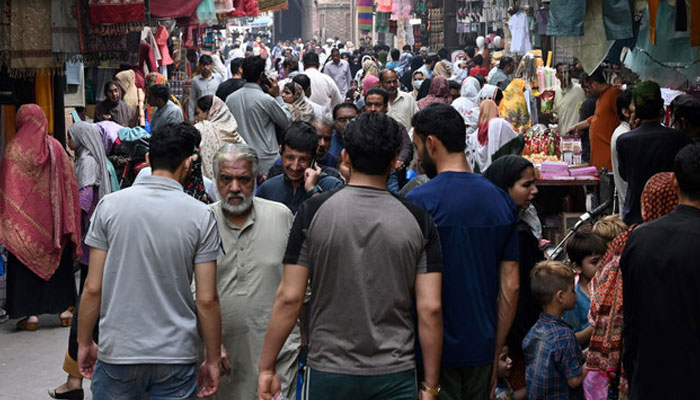Tax the rich, tax them more
LAHORE: In Pakistan, like in many countries, wealth distribution is heavily skewed, with a significant proportion of resources controlled by a small percentage of the population. As seen elsewhere in the world, these super-rich need to be taxed more.
The concentration of wealth is a global issue and is not confined to Pakistan. Regardless of nationality, the world’s ultra-rich are predominantly men, confirming male dominance, and they pay substantially less tax as a share of their income compared to the taxes paid by their employees and other middle-class workers. This situation exacerbates inequality as income distortion worsens.
Global statistics reveal that only 3,000 people have amassed $14.4 trillion in wealth, equivalent to 13 per cent of the world’s GDP. There has been a sharp increase in billionaires’ wealth over the last three decades. In 1993, global billionaires controlled less than 3.0 per cent of the global GDP. The political influence of these billionaires has also increased with their wealth.
In Pakistan, specific percentages of resources controlled by the richest 10 per cent and the poorest 10 per cent are not always readily available, as these figures can vary depending on the methodology and sources used.
However, it is estimated that the top 10 per cent of the population controls a significant portion of the country’s wealth, often upwards of 60-70 per cent of the total wealth. Conversely, the bottom 10 per cent holds a very small fraction of the wealth, sometimes estimated to be less than 1.0 per cent of the total.
At the societal level, the ever-increasing inequalities seem to be of little concern. We tend to respect people based on their wealth status rather than their moral character. What we do not tolerate are religious beliefs or political differences.
The economic deprivation of a large segment of society has contributed to the current deplorable state prevailing in the country.
The 90 per cent of the population contributes 75 per cent of the total taxes collected in Pakistan, while the wealthiest 10 per cent, who control 70 per cent of the total wealth, contribute only 25 per cent of the total taxes collected.
This stark disparity highlights the level of inequality in our taxation system.Our cultural norms seem to accept these growing inequalities, focusing more on wealth status than on moral character. The economic deprivation faced by a significant portion of society has led to the current dire situation.
According to a professor of economics, despite the lack of precise statistics on inequality, rising market power, automation, and globalization have negatively impacted billions of lives.Those affected view their plight as a profound injustice and have lost faith in the political system that has failed them.
Nobel laureate economist Angus Deaton points out that inequality is often conflated with unfairness and should be understood not as a cause of social and political processes, but as a consequence.
-
 UK Asylum System Faces Changes As Refugees Will Get Temporary Protection Only
UK Asylum System Faces Changes As Refugees Will Get Temporary Protection Only -
 Meghan Markle Has Realised ‘star Power’ Is Not Enough After Jordan Trip
Meghan Markle Has Realised ‘star Power’ Is Not Enough After Jordan Trip -
 USC Leading Scorer Chad Baker-Mazara Leaves Program Amid Losing Streak
USC Leading Scorer Chad Baker-Mazara Leaves Program Amid Losing Streak -
 Google Is Winding Down Popular App 'Pixel Studio': Here's Why
Google Is Winding Down Popular App 'Pixel Studio': Here's Why -
 Zendaya, Tom Holland Secretly Married?
Zendaya, Tom Holland Secretly Married? -
 Dove Cameron Reveals Why She's Limiting Relationship Talk After Damiano David Engagement
Dove Cameron Reveals Why She's Limiting Relationship Talk After Damiano David Engagement -
 Bulls Vs Bucks: Giannis Out, Simons And Williams Sidelined
Bulls Vs Bucks: Giannis Out, Simons And Williams Sidelined -
 Princess Beatrice Is ‘haunted’ By Dreadful Shamed Andrew Arrest
Princess Beatrice Is ‘haunted’ By Dreadful Shamed Andrew Arrest -
 Panthers Vs Islanders: Dmitry Kulikov Returns From Injured Reserve As Schwindt Hits IR
Panthers Vs Islanders: Dmitry Kulikov Returns From Injured Reserve As Schwindt Hits IR -
 SAG-AFTRA Drops SAG Awards Name To Rebrand
SAG-AFTRA Drops SAG Awards Name To Rebrand -
 Next Full Moon: How To Watch The Total Lunar Eclipse On March 3
Next Full Moon: How To Watch The Total Lunar Eclipse On March 3 -
 Bhad Bhabie Shares Tender Moment With Daughter Amid Cancer Setback Hint
Bhad Bhabie Shares Tender Moment With Daughter Amid Cancer Setback Hint -
 Silver, Gold Prices Surge Amid Geopolitical Uncertainty After US-Israel Attack On Iran
Silver, Gold Prices Surge Amid Geopolitical Uncertainty After US-Israel Attack On Iran -
 Britain To Trial Social Media Ban For Hundreds Of Thousands Of Children Under-16
Britain To Trial Social Media Ban For Hundreds Of Thousands Of Children Under-16 -
 Prince Harry Should Face Same Fate As Shamed Andrew, Says Expert
Prince Harry Should Face Same Fate As Shamed Andrew, Says Expert -
 Oil Price Jumps, Stocks Fall After US And Israel Strike Iran
Oil Price Jumps, Stocks Fall After US And Israel Strike Iran




